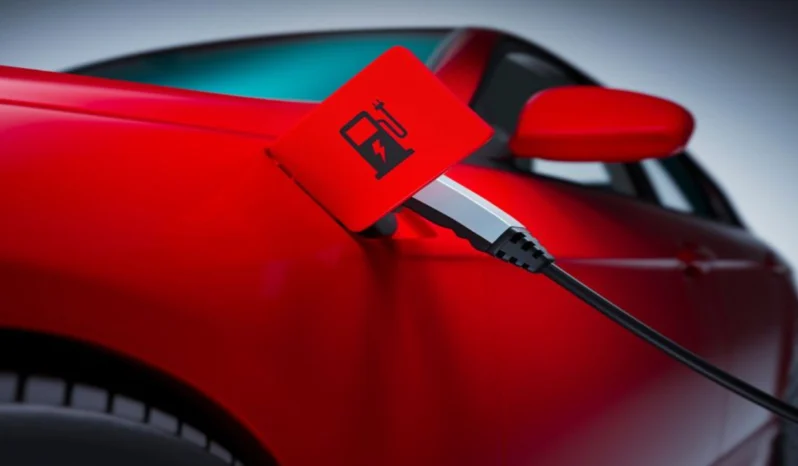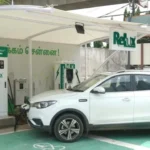India is taking on an electrically charged, emission-free transportation future, and electric vehicles are the pace setters at this juncture. Various Indian states are going to come out with EV incentives that are going to make car ownership both accessible and attractive for consumers in 2024. It has not only reduced the financial barriers but also created an enabling environment for adoption.
Tarun Mehta, a co-founder of Ather Energy said, “Indian markets are ready for electric vehicles, but long-term stable government support is critical to help build consumer trust.”
Landscape of EV Incentives in India
Across India, the center, as well as the state government, have launched a very big range of incentives to adopt clean transportation. These incentives range over direct subsidies, tax-free, registration fee, increased charging infrastructure, etc. To make EVs cheaper to the consumer and viable and practical. Here are incentive details by key states listed below:
|
State |
Subsidy per kWh |
Max. Subsidy |
Additional Benefits |
|
Maharashtra |
₹5,000 |
₹2,50,000 |
Early bird incentives for E4 wheelers upto ₹1,00,000 |
|
Gujarat |
₹10,000 |
₹1,50,000 |
Exemption from registration fees |
|
Delhi |
₹10,000 |
₹1,50,000 |
Additional benefits for e-rickshaw and e-autos |
|
Tamil Nadu |
₹10,000 |
₹1,50,000 |
Road tax and registration expenses are completely waived. |
|
Assam |
₹10,000 |
₹1,50,000 |
90% exemption on electricity for charging stations |
Maharashtra EV Incentives
- Maharashtra’s policy takes the lead with a lavish subsidy of ₹5,000 per kWh, capped at ₹2.5 lakh for four-wheelers and ₹44,000 for two-wheelers. The state also provides early bird incentives up to ₹1,00,000 on four-wheelers.
Gujarat: Finely Placed for EV Buyers
- Gujarat is one of the financially most attractive states to own an EV as it subsidizes at ₹10,000 per kWh and has a complete waiver on registration fees.
Delhi: All-encompassing Urban EV Incentive
- Delhi’s policy is an integrated one. It offers a flat subsidy of ₹ 10,000 per kilo watt hour. In addition to this, special incentive is given to e-rickshaws and e-autos. The Vikram Singh, Transport Corporation Delhi, highlights that “the versatile approach of Delhi supports last-mile connectivity and moves the cause of sustainability in urban transport closer.” Thus, the challenges of urban transport are met, and electrification is also sought in this policy.
Tamil Nadu: Encouraging Local Production
- Tamil Nadu goes beyond the incentives for consumers by waiving road tax and registration fees and also recovering the SGST paid by the manufacturer while selling its EVs. Dr Priya Menon, Tamil Nadu Industrial Development Corporation says: “Tamil Nadu’s policies encourage local EV manufacturing and job creation, which strengthens the state’s economy while promoting green mobility.”
Assam EV Incentives
- Assam is in the fray with a subsidy of ₹10,000 per kWh and 90% electricity exemption for charging stations.
Key Benefits of EV Incentives to Consumers
- Reduced Purchase Cost: Direct subsidies reduce the upfront cost of an EV purchase for a first-time buyer.
- Tax and Fee Waivers: Exemption on road tax and registration fees makes owning an EV more affordable.
- Developed Charging Infrastructure: The money invested in charging station is believed to lessen range anxiety and make electric vehicles possible.
- Environmental Benefits: Environment savvy consumers who choose to use electric vehicles to help reduce the amount of pollution and emission within the atmosphere.
Nitin Gadkari, Minister of Road Transport and Highways, has stated that “Incentives from the government highly influence consumer choice, and long-term support will be needed to achieve 30% electric vehicle penetration by 2030 for India.”
ELCTRIK Speaks
The Indian states themselves are acceleration driving toward sustainable transportation with the state-level incentive policies. Electric vehicle market in India is on the very verge of a breakthrough assisted by the strong support provided at both the government and industry levels. Ever -attractive subsidies, tax relief, and developing charging infrastructure ensure that consumers have more reasons than ever to consider switching to electric vehicles.






